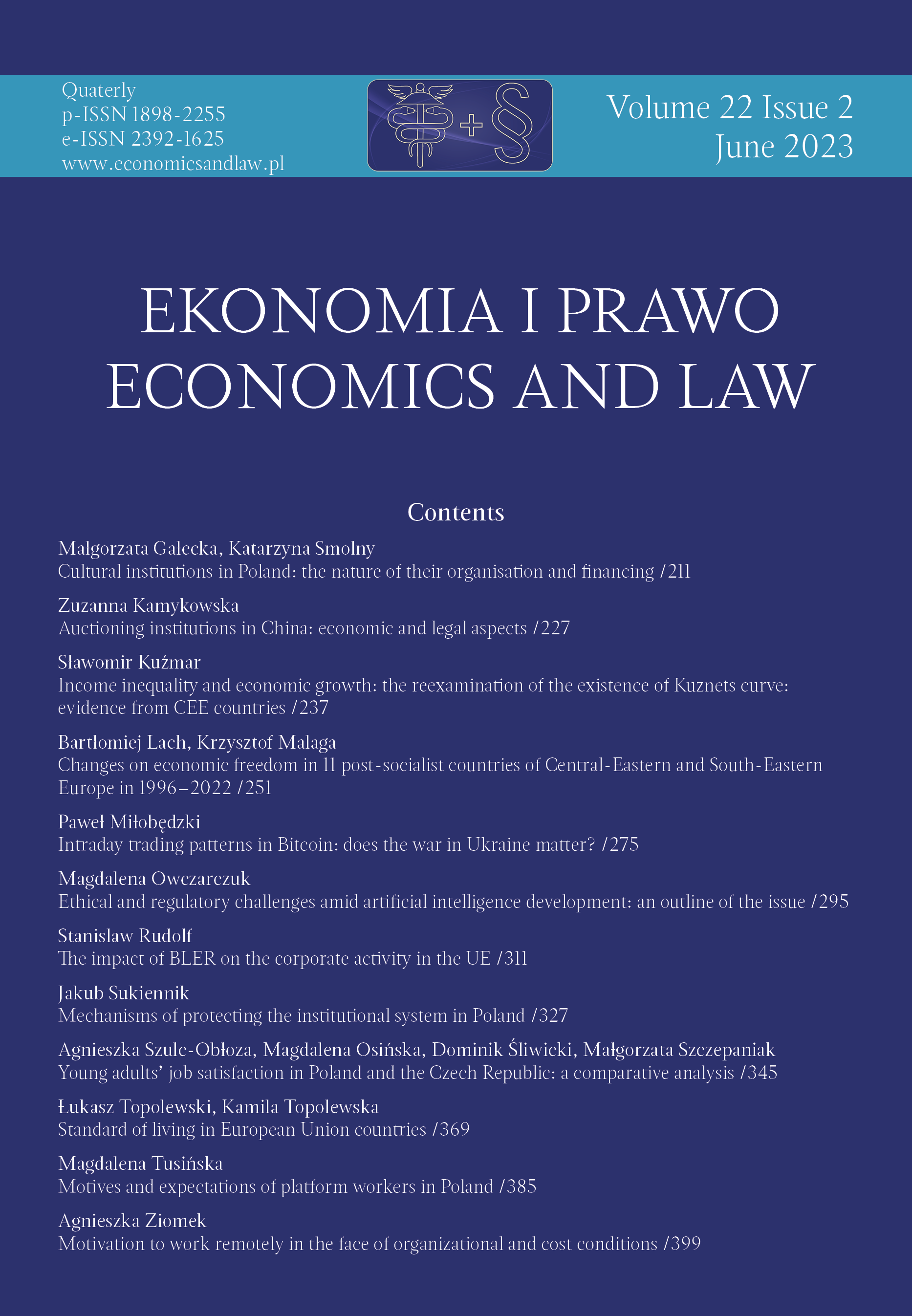Motivation to work remotely in the face
of organizational and cost conditions
Motivation to work remotely in the face
of organizational and cost conditions
Author(s): Agnieszka ZiomekSubject(s): Business Economy / Management, Health and medicine and law, Human Resources in Economy
Published by: Wydawnictwo Naukowe Uniwersytetu Mikołaja Kopernika
Keywords: motivation; remote work; costs; communication; stress;
Summary/Abstract: Motivation: Working conditions have changed significantly as remote working has become widespread in many countries. These changes were caused by a pandemic, as a result of which the possibility of direct communication as well as control and integration of employees was limited. There are also new cost categories for employees and employers, such as installing a better internet connection, purchasing new hardware and software, and implementing better security for data transmission outside the company’s premises. These changes resulted in changes in the employee motivation factors against the background of organizational and cost conditions, which is important for the proper development of the organization. Aim: The aim of the article is to assess motivation to work remotely, based on a survey of opinions among 450 employees in total in Poland, the Czech Republic, and Hungary. The assessment was performed by verifying, using the logistic regression method, ten hypotheses describing organizational and cost conditions as well as individual effects, such as career opportunities, an increase in knowledge and skills, and the occurrence of stress that arose as a result of working remotely. The motivation to work remotely was verified by establishing the willingness to continue working through an opinion. Results: Motivation in remote work is influenced by both efficient communication and technical assistance provided to the employee remotely. Motivation resulting from the independent organization of working time is also important, and it is based on the decision to choose the duration of work, hours and intensity of its performance. Organizational and cost-related factors are related to motivation, as well as individual effects experienced by the employee. Directly from the survey, it appears that only 26.8% of the respondents incurred higher costs related to remote work during the COVID-19 pandemic. However, the respondents want to continue it with their current earnings. The study found that employees are motivated to work remotely because the organizational conditions and earnings meet their needs. They also admitted that thanks to remote work, they have a better chance of developing a professional career, as well as a higher level of their knowledge and skills, which is also associated with the motivation to continue working remotely.
Journal: Ekonomia i Prawo. Economics and Law
- Issue Year: 22/2023
- Issue No: 2
- Page Range: 399-418
- Page Count: 20
- Language: English

